
Just recently in the Caribbean, we have had to contend with some superlative challenges to our regional tourism product. Consider:
- Volcano – Saint Vincent and all Eastern Caribbean Islands
- Category 5 Hurricanes
- Pandemic – COVID-19
- Cruise Industry Shut-down
- <<< Enter Next Threat Here >>>
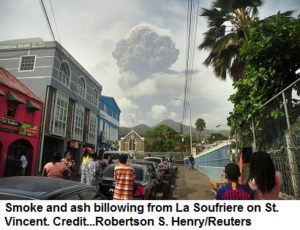
The Clear and Present Dangers of doing business in the Caribbean have been “clear” and “present”.
There is the need for Non-Zero-Sum Thinking. For far too long, Caribbean member-states have been thinking Zero Sum – for one to gain, another one must lose – just trying to outshine each other, with no consideration as to how well or badly the other places fare:
I got mine; I don’t care if you get yours!
Your loss is my gain!
This reflects competition, when really what we need is cooperation, collaboration, convention, collective-bargaining, collusion, consensus-building, confederation …
The requested change is for a new cooperative Community Ethos – the underlying sentiment that informs the beliefs, customs, or practices of society – that we should adopt to coordinate our economic engine on a regional basis.
This is the continuation of the February 2021 Teaching Series for the movement behind the 2013 book Go Lean…Caribbean. (Every month, we present a series relevant to Caribbean life, culture and economics). For this month, we are looking at the subject of Zero Sum Thinking and lamenting how cooperation would be so much more preferred to competition. This fourth entry, 4-of-6, encores a previous blog-commentary that addressed this subject thoroughly; this aligned with the full treatment of this subject. Consider the full catalog of this series, as it is being presented:
- Zero Sum: Lesson 101 – No more “Gold Standard”
- Zero Sum: Realities of Globalism – “Non-Zero Sum” for the whole world
- Zero Sum: ICT as a tool, the “Great Equalizer”
- Zero Sum: Regional Tourism should not be a competition – Encore
- Zero Sum: Book Review – Racism is a factor; “Us vs Them”
- Zero Sum: How to fix “Inequality” – Raise the tide, all boats are elevated
We started this series on Zero Sum by looking at the economic principle that since we are no longer on a “Gold Standard”, any view of “haves versus have-nots” is no longer an issue. We, the full 30 Caribbean member-states, can now all win, gain and grow. Since we have been here and said this before, it is only apropos that we reconsider that previous blog-commentary from June 16 2018, as it relates this assertion.
———————-
Go Lean Commentary – Regional Tourism Coordination – No Longer Optional
No one can hide anymore!
There are 30 different member-states, with 5 different colonial legacies and 4 different languages, and yet people around the world only considers our region as One Caribbean:
| Event | Consequence to Perception |
| Devastating hurricane | Oops, the Caribbean is unable to function commercially |
| Devastating earthquake | Oops, the Caribbean is unable to function commercially |
| Emergence of a pandemic | Oops, the Caribbean is unable to function commercially |
All of the Caribbean member-states are in this “same boat”, so this is a matter of image and geographic misconceptions, more so than it is about disasters.
So, good or bad, the fate of one Caribbean member-state is tied to the other member-states, when it comes to tourism. See this point conveyed in this news article here:
Title: Geographic misconceptions hurting Caribbean economies
By Sarah Peter
Nassau, Bahamas – The mistaken perception among many travelers of the complete devastation of the Caribbean in the wake of the 2017 hurricane season caused further economic destruction to the region’s economy.
That’s according to the Chair of the Caribbean Tourism Organization (CTO), Joy Jibrilu. She raised the concern amid staggering losses among countries which were not impacted by the 2017 Hurricane season.
Jibrilu says following the devastation caused by hurricanes Irma and Maria to some islands in the region, many travelers called and canceled for countries who were not impacted by the storm.
This resulted in a significant drop in hotel room demand across the entire Caribbean. In light of that another disaster, an economic storm, was created which resulted in great losses in tourism revenue and a challenge for tourism officials.
“All our travel partners, all of them without exception called and said that we have heard the Caribbean is closed.”
She further added that Caribbean islands irrespective of if they were not actually impacted by the storm were economically affected.
“We all lost when people were not sure if or when to book if they canceled. You saw a dip in bookings because people thought that the islands which were not impacted were. We must quantify the figures of lost business so we can share the story with the world to tell them how serious it is. “
The chair of the CTO says that over one billion US dollars in tourism revenue was lost in the wake of last year’s hurricane season, the costliest hurricane season on record.
Jibrilu, who is also the Director of Tourism for the island of Barbados says the region’s reconstruction and recovery effort has been estimated at close to 6 billion dollars.
“Tourism is the region’s greatest driver of foreign exchange tax revenue and reliable vehicle of poverty reduction and human capital development for the region’s small island developing states. The tragedy is that the dampening of demand occurred even among islands that were not in the path of the storm. This contributes to an economic disaster as tourism visitation dropped of resulting in significant losses in revenue.”
Jilbrilu blamed the international media for the problem. She says their reports describes the region as if it was one country as opposed to several different islands. The chairman of the CTO says this inaccurate reporting is costing a region millions and negatively impacting lives in the region.
“First of all if we look at international news reporters when they talk about a hurricane they say the “Caribbean” has been impacted. They generalize and say the entire Caribbean. As a result, people look at the Caribbean as a whole unit as oppose to all these different countries, thousands of miles away from each other. To put it in context the Bahamas alone from north to south covers one hundred thousand square miles that is further than the distance of Toronto to New York. So if a storm happens in New York no one would say I am not going to Toronto. They just would not, it just does not make sense but when people lump the Caribbean together as just one region ( as if it was just one country ) it is negative.”
Jilbrilu says the region’s economy and people lives depend on accurate reporting and think making the international media more aware of this matter is a matter of economic prosperity or suffering for the region’s people.
“What we have done is to educate people of the geography of the Caribbean, that the same time it takes to travel from the Bahamas to Barbados is the same as traveling from London in the UK to Rome, Italy. So what happens to the Bahamas does not impact Barbados and vice versa. We really want to get that message out.”
Jilbrilu made the disclosure at the 2018 annual Caribbean Aviation Meetup in the Bahamas. Dubbed as the Caribbean region’s largest aviation conference the annual event brings together major players from the aviation and tourism industries aimed at tackling problems faced by the World and the Caribbean’s Tourism and Aviation industries.
Source: Posted and retrieved June 15, 2018 from: https://stluciatimes.com/2018/06/15/geographic-misconceptions-hurting-caribbean-economies/
As related in the foregoing, the whole world knew of the 2017 devastation from Hurricanes Irma and Maria. But the affected (wiped-out) islands were only Barbuda, Grenada and Puerto Rico. And yet:
… following the devastation caused by hurricanes Irma and Maria to some islands in the region, many travelers called and canceled for countries who were not impacted.
Again, this is a matter of image and geographic misconceptions, more so than it is about disasters or even tourism. The world is telling the Caribbean: Better band together to assuage your challenges. We are united in affliction, we might as well be united in solutions. Yes, it is no longer optional for our region to confederate as a Single Market. This, we must do!
Confederation is not a bad thing! In a previous blog-commentary, it was asserted that our Caribbean member-states all suffer from the same inadequate image, and thusly we can all benefit from a regional elevation. Yes, the effect of regional integration could be an Increased Caribbean Tourism Market Share. That commentary quoted:
It’s time to take inventory of Caribbean tourism:
It has been weighed in the balance; it has been measured …
It has been found wanting!
…
Tourism is the current dominant industry; the goal is to “stand on the shoulders” of previous accomplishments, add infrastructure not possible by just one member-state alone and then reap the benefits. Imagine this manifestation in just this one new strategy: inter-island ferries that connect all islands for people, cars and goods.
The movement behind the book Go Lean … Caribbean seeks to reboot the economic engines of the Caribbean member-states. So while tourism is the region’s primary economic driver, it is inadequate for providing the needs of the people in the region, and inadequate for dealing with the crisis of natural disasters. We must do better!
The Go Lean book serves as a roadmap for the introduction and implementation of the Caribbean Union Trade Federation (CU). The CU is designed to be a technocratic intergovernmental entity that shepherds economic growth for the Caribbean region and mitigate against all security-disaster challenges. The goal is to reboot and optimize the region’s economic, security and governing engines with a regional focus.
The Go Lean/CU roadmap will employ strategies, tactics and implementations to impact its prime directives; identified with the following 3 statements:
- Optimization of the economic engines in order to grow the regional economy to $800 Billion & create 2.2 million new jobs.
- Establishment of a security apparatus to ensure public safety and protect the resultant economic engines. This includes a professional disaster planning and response organization.
- Improvement of Caribbean governance to support these engines, including a separation-of-powers between the member-states and CU federal agencies, as in Self-Governing Entities.
The Go Lean book provides 370-pages of turn-by-turn instructions on “how” to adopt new community ethos, plus the strategies, tactics, implementations and advocacies to execute so as to elevate Caribbean image in good times and bad. One advocacy seeks to optimize the Caribbean tourism brand throughout the world; consider some specific plans, excerpts and headlines from the book on Page 133 entitled:
10 Ways to Better Manage Image
| 1 | Lean-in for the Caribbean Single Market This will allow for the unification of the region into one market of 42 million people across 30 member-states, with a GDP of $800 Billion (according to 2010 figures). In addition, the treaty calls for collective bargaining with foreign countries and industry representatives for causes of significance to the Caribbean community. There are many times when the media portray a “negative” depiction of Caribbean life, culture and people. The CU will have the scale to effectuate negotiations to better manage the region’s image, and the means by which to enforce the tenets. |
| 2 | Media Industrial Complex The Caribbean Central Bank will settle electronic payments transactions; this will allow electronic commerce to flourish in the region. With the payment mechanisms in place, music, movies, TV shows and other media (domestic and foreign) can be paid for and downloaded legally. For a population base of 42 million, this brings a huge economic clout. |
| 3 | Respect for Intellectual Property |
| 4 | Sentinel in Hollywood |
| 5 | Anti-Defamation League This Pro-Jewish organization provides a great model for marshalling against negative stereotypes that can belittle a race. The CU will study, copy, and model a lot of the successes of the Anti-Defamation League. This organization can also be consulted with to coach the CU’s efforts. (Consider the example of Uptown Yardies Rasta Gang in the game Grand Theft Auto [206]). |
| 6 | Power of the Boycott The CU is an economic negotiating bloc. The power to ban, boycott and censure trade in intellectual property is a powerful deterrent for producers to be balanced in their media portrayals. A CU federal agency will assume the role to rate pending moves, as performed by MPAA in the US. While the content may not be banned outright, placing a Rated R, NC-17 or X label to a film will affect the economic results from the box office. This is the “power of the purse”. |
| 7 | Freedom of the Press |
| 8 | Libel and Slander Litigation and Enforcement |
| 9 | Public Relations and Press Releases To facilitate effective communications, the CU’s agencies will embrace the role of “Press Secretaries” to disseminateaccurate records, news and portrayals of Caribbean life. This role is Offensive rather than the above Defensive tactics. |
| 10 | Image Award Medals and Recognition Following the model of the NAACP Image Awards, the CU will recognize and give accolades for individual and institutions that portray a positive “image” of Caribbean life and CU initiatives. This would be similar to the Presidential Medal of … / Congressional Medal of … |
The likelihood of more hurricanes in the Caribbean is undeniable. This is further exacerbated with the reality of Climate Change. Our Caribbean region must be prepared to Rinse & Repeat. It is no longer an option to maybe manage our image on a regional level. The world must know that we are bigger than just whatever island has been recently impacted by a natural disaster. This challenge is heavy-lifting because, as a region, we rarely muster an adequate response to our natural disasters.
The Go Lean book explains further that the Caribbean region must install a security apparatus with the directive to prepare and respond to natural disasters. The efficiency and effectiveness of a Caribbean Emergency Management Agency must be streamlined to ensure the world of the business continuity of our systems of commerce. This quotation is derived from the book at Page 184:
Modeled after FEMA in the US, this agency will be charged with the preparation, response and reconstruction for the regions for the eventual manifestations of hurricanes, earthquakes, tsunamis, flooding and other declared disasters, natural and man-made like medical epidemic, drought, pollution, oil spills, terrorism, etc.
This is what it means to be a technocracy, to promote the best delivery arts and sciences, in this case for Professional Emergency Management; as explained further at Page 64:
The CU treaty calls for a collective security agreement for the Caribbean member-states to prepare-respond to natural disasters, emergency incidents and assuage against systemic threats against the homeland. The CU employs the professional arts and sciences of Emergency Management to spread the costs and risks across the entire region. Outside of hurricanes or earthquakes, the emergency scope includes medical trauma, pandemic incidents and industrial accidents (i.e. oil or chemical spills) – any scenario that can impact the continuity of the economic engines and/or community.
This above scenario describes the dynamics of regional tourism promotion and protection. Yes, managing regional tourism means optimizing the planning and response for natural disasters. This is no longer optional for this homeland. We are compelled to invest in this integration and collaboration. We must have the leverage to spread the costs, risks and premium base across the entire region. Only then will the rest of the world know that any hurricane in the Caribbean does not mean a shutdown of the entire Caribbean region. Our image will then be:
Be our guests … in rain and shine.
Consider this Hawaiian example; yes this problem of promoting tourism while contending with natural disasters is not just an issue for the Caribbean. Rather, the US State of Hawaii is contending with the same thing right now, with the active Kīlauea volcano. See related news VIDEO in the Appendix below.
There is the need for better stewardship of the economic engines on touristic islands, be it Hawaii or the Caribbean. It is what it is! And our situations will worsen; things will get worse before they get worst. This is due to the reality and eventuality of Climate Change. This need to assuage against the threats and realities of Climate Change was an original intent of the Go Lean roadmap. The opening Declaration of Interdependence stresses this (Page 11) in the first of many pronouncements:
i. Whereas the earth’s climate has undeniably changed resulting in more severe tropical weather storms, it is necessary to prepare to insure the safety and security of life, property and systems of commerce in our geographical region. As nature recognizes no borders in the target of its destruction, we also must set aside border considerations in the preparation and response to these weather challenges.
The Go Lean movement has previously detailed many related issues and advocacies for disaster awareness and abatement. Consider this sample of previous blog-commentaries:
| https://goleancaribbean.com/blog/?p=15012 | In Life or Death: No Love for Puerto Rico |
| https://goleancaribbean.com/blog/?p=14925 | ‘Climate Change’ Reality!? Numbers Don’t Lie |
| https://goleancaribbean.com/blog/?p=14832 | Example of Manifesting Environmental Change |
| https://goleancaribbean.com/blog/?p=13391 | After Maria, Failed-State Indicators: Destruction and Defection for Puerto Rico |
| https://goleancaribbean.com/blog/?p=12996 | After Irma, Failed State Indicators: Destruction and Defection |
| https://goleancaribbean.com/blog/?p=12977 | After Irma, Barbuda Becomes a ‘Ghost Town’ |
| https://goleancaribbean.com/blog/?p=12900 | The Logistics of Disaster Relief |
| https://goleancaribbean.com/blog/?p=12879 | Disaster Preparation: ‘Rinse and Repeat’ |
| https://goleancaribbean.com/blog/?p=11858 | Looking and Learning from the Cautionary Tale of Kiribati |
| https://goleancaribbean.com/blog/?p=9455 | Fix ‘Climate Change’ – Yes, We Can |
| https://goleancaribbean.com/blog/?p=7103 | COP21 – ‘Climate Change’ Acknowledged |
| https://goleancaribbean.com/blog/?p=6893 | A Meteorologist’s View On Climate Change |
| https://goleancaribbean.com/blog/?p=4673 | ‘Climate Change‘ Merchants of Doubt … to Preserve Profits!! |
| https://goleancaribbean.com/blog/?p=2465 | Book: ‘This Changes Everything: Capitalism vs. the Climate’ |
| https://goleancaribbean.com/blog/?p=2276 | Climate Change May Affect Food Supply Within a Decade |
| https://goleancaribbean.com/blog/?p=1883 | Climate Change May Bring More Kidney Stones |
| https://goleancaribbean.com/blog/?p=1817 | Caribbean grapples with intense cycles of flooding & drought |
In summary, the issues in this commentary relate more to image and geographic misconceptions than they do tourism and natural disasters. Do we have the global reputation to “take a punch and stand back up”.
Unfortunately, no!
So we must reform and transform the Caribbean’s societal engines so as to assuage the dangers of Climate Change and natural disasters; pandemics too. This is the quest of the Go Lean roadmap, and this is not just a pipe dream; it is conceivable, believable and achievable for our regional stakeholders to do better and be better.
All Caribbean stakeholders – residents and tourists alike – are urged to lean-in to this roadmap for change … and empowerment. Yes, we can make the region a better place to live work and play. 🙂
Sign the petition to lean-in for this roadmap for the Caribbean Union Trade Federation.
—————-
Appendix VIDEO – Hawaii tourism hit hard by Kilauea volcano eruption – https://youtu.be/89ppKLS5ufI
CBS Evening News
Published on Jun 2, 2018 – As molten lava destroys more homes in Hawaii, police have been ordered to arrest people who refuse to evacuate. Thousands have already been forced to flee to safety. Now, dramatic images broadcast around the world are having another impact — on tourism. CBS News correspondent Carter Evans reports.
- Category: News & Politics
- License: Standard YouTube License

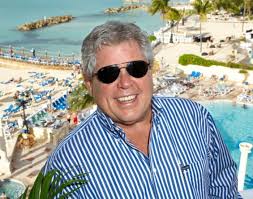 Gordon “Butch” Stewart has died. 🙁
Gordon “Butch” Stewart has died. 🙁 Butch Stewart labored to promote, provide and protect Caribbean interest all over the world. He proved to be a fine role model for the Caribbean youth to emulate. In fact, his profile was featured in the 2013 book Go Lean…Caribbean – on Page 189 – this publication serves as a roadmap for rebooting the Caribbean societal engines of economics, security and governance. See that published profile in the Appendix below.
Butch Stewart labored to promote, provide and protect Caribbean interest all over the world. He proved to be a fine role model for the Caribbean youth to emulate. In fact, his profile was featured in the 2013 book Go Lean…Caribbean – on Page 189 – this publication serves as a roadmap for rebooting the Caribbean societal engines of economics, security and governance. See that published profile in the Appendix below.
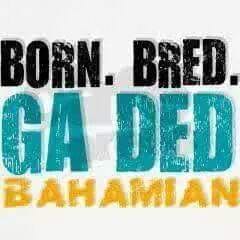

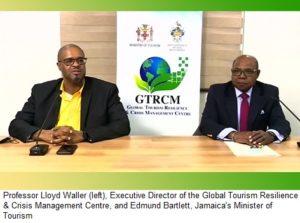 Jamaica Cares, a joint collaboration between the Global Tourism Resilience & Crisis Management Centre (GTRCMC), the Global Travel and Tourism Resilience Council, and Global Rescue, is being hailed as a first-of-its kind traveller protection and emergency services program designed to protect both visitors and the people of Jamaica.
Jamaica Cares, a joint collaboration between the Global Tourism Resilience & Crisis Management Centre (GTRCMC), the Global Travel and Tourism Resilience Council, and Global Rescue, is being hailed as a first-of-its kind traveller protection and emergency services program designed to protect both visitors and the people of Jamaica.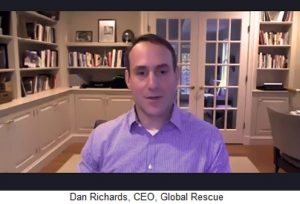
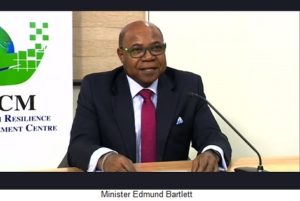
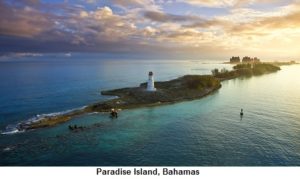

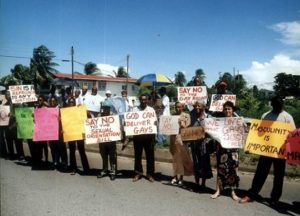
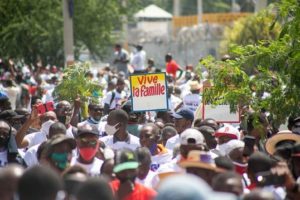
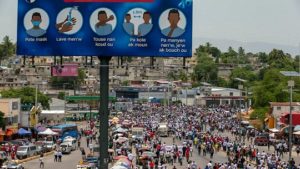

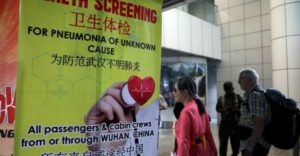
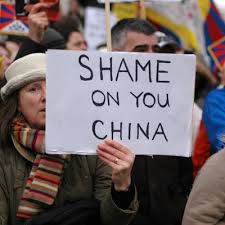
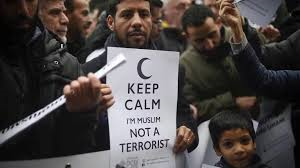 The actuality of Intolerance is the opposite of the qualities a pluralistic society like the Caribbean needs to develop. We have a new found economic engine that we can now exploit:
The actuality of Intolerance is the opposite of the qualities a pluralistic society like the Caribbean needs to develop. We have a new found economic engine that we can now exploit: 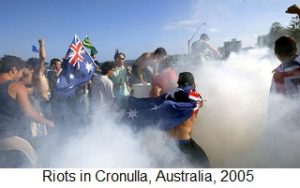

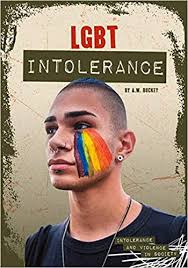

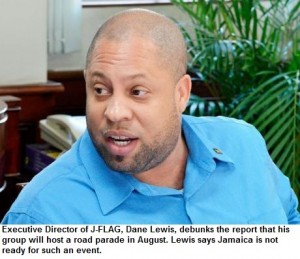



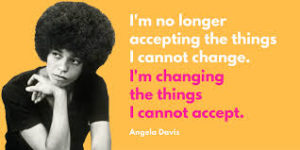

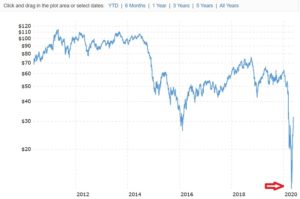
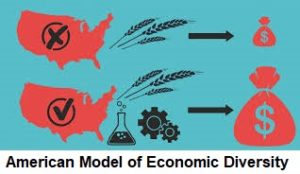
 Saudi Arabia finds itself at a significant economic crossroads. Home to the second-largest oil reserves in the world, the kingdom’s economy has been largely defined by the crude industry since drillers first struck oil in Dammam in March 1938. The discovery marked a watershed moment in the nation’s history, sparking an economic boom and propelling Saudi Arabia towards becoming one of the world’s wealthiest countries. Today, the nation is recognised as a global economic powerhouse, sitting among the G20 countries and boasting one of the highest GDPs in the Middle East.
Saudi Arabia finds itself at a significant economic crossroads. Home to the second-largest oil reserves in the world, the kingdom’s economy has been largely defined by the crude industry since drillers first struck oil in Dammam in March 1938. The discovery marked a watershed moment in the nation’s history, sparking an economic boom and propelling Saudi Arabia towards becoming one of the world’s wealthiest countries. Today, the nation is recognised as a global economic powerhouse, sitting among the G20 countries and boasting one of the highest GDPs in the Middle East.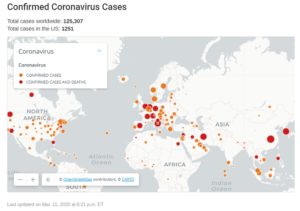
 It is not a fair fight, but it is a fight that many countries will face all the same. Left to itself, the COVID-19 pandemic doubles every five to six days. When you get your next issue of The Economist the outbreak could in theory have infected twice as many people as today. Governments can slow that ferocious pace, but bureaucratic time is not the same as virus time. And at the moment governments across the world are being left flat-footed.
It is not a fair fight, but it is a fight that many countries will face all the same. Left to itself, the COVID-19 pandemic doubles every five to six days. When you get your next issue of The Economist the outbreak could in theory have infected twice as many people as today. Governments can slow that ferocious pace, but bureaucratic time is not the same as virus time. And at the moment governments across the world are being left flat-footed.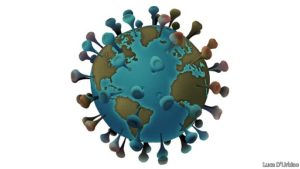 Sick pay also helps soften the blow to demand which, along with a supply shock and a general panic, is hitting economies. These three factors, as China shows, can have a dramatic effect on output. Manufacturing activity there sank in February to its lowest level since managers were first surveyed in 2004. In the quarter to March the economy as a whole could shrink for the first time since the death of Mao Zedong. The OECD expects global growth this year to be its slowest since 2009. Modelling by academics at the Australian National University suggests that GDP in America and Europe would be 2% lower than it would have been in the absence of a pandemic and perhaps as much as 8% lower if the rate of deaths is many times higher than expected. Financial markets are pricing in fear. The S&P 500 has fallen by 8% from its peak on February 19th. Issuance of corporate debt on Wall Street has more or less stopped. The yield on ten-year Treasuries dipped below 1% for the first time ever.
Sick pay also helps soften the blow to demand which, along with a supply shock and a general panic, is hitting economies. These three factors, as China shows, can have a dramatic effect on output. Manufacturing activity there sank in February to its lowest level since managers were first surveyed in 2004. In the quarter to March the economy as a whole could shrink for the first time since the death of Mao Zedong. The OECD expects global growth this year to be its slowest since 2009. Modelling by academics at the Australian National University suggests that GDP in America and Europe would be 2% lower than it would have been in the absence of a pandemic and perhaps as much as 8% lower if the rate of deaths is many times higher than expected. Financial markets are pricing in fear. The S&P 500 has fallen by 8% from its peak on February 19th. Issuance of corporate debt on Wall Street has more or less stopped. The yield on ten-year Treasuries dipped below 1% for the first time ever. So Brain Drains … are bad!
So Brain Drains … are bad!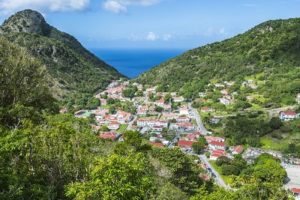
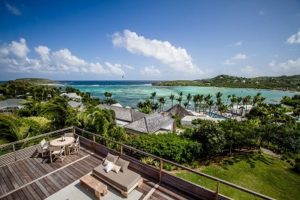

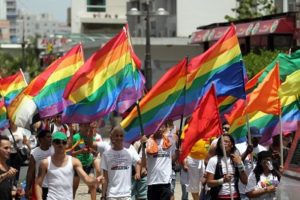
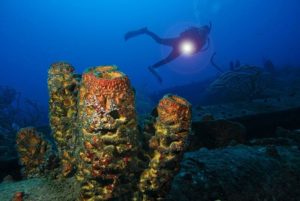
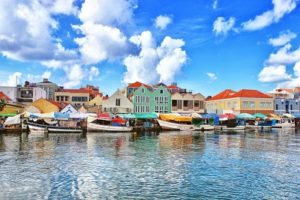
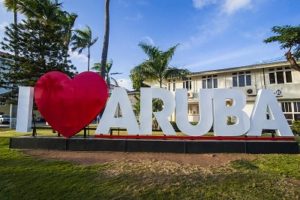
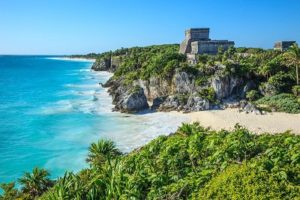
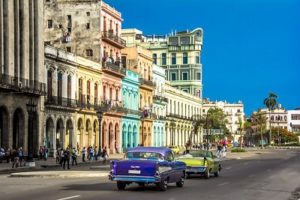

 Happy New Year …
Happy New Year …

 Supply and Demand …
Supply and Demand …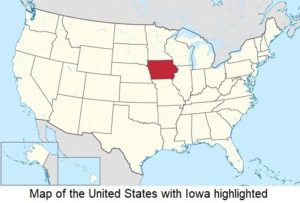 Iowa 101
Iowa 101 
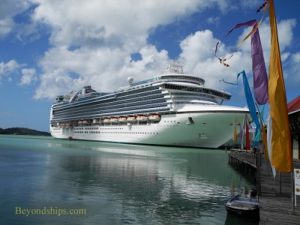 Do you see the opportunity here, in supplying the demand for beef for the cruise ships traversing the Caribbean?
Do you see the opportunity here, in supplying the demand for beef for the cruise ships traversing the Caribbean?


